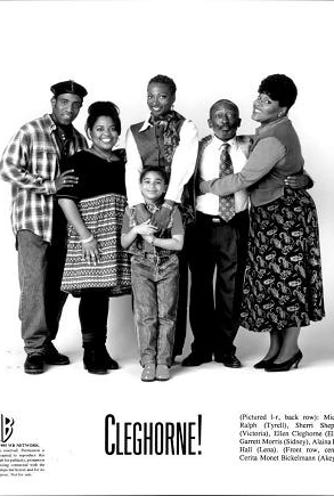Traci Bingham, a renowned actress and model, has made a significant impact in the entertainment industry with her talent and beauty. While her professional achievements are well-documented, it is important to note that this article will focus on a specific aspect of her career and personal life: the discussion and implications of her nude appearances in various media.
Traci Bingham: A Brief Overview

Born on January 13, 1968, in California, Traci Bingham rose to prominence through her roles in popular television shows and films. Her most notable role was as Jordan Tate in the hit series Baywatch, where she captivated audiences with her charisma and stunning physique. Beyond acting, Bingham has also established herself as a successful model, gracing the covers of prestigious magazines and becoming an iconic figure in the fashion world.
The Nude Appearances: A Complex Discussion

Traci Bingham’s decision to appear nude in various media has sparked a range of reactions and discussions. While some applaud her confidence and body positivity, others have raised concerns about the potential objectification and exploitation of women in the entertainment industry. This section aims to delve into the nuances of this topic, exploring the motivations, implications, and cultural context surrounding Traci Bingham’s nude appearances.
The Power of Body Positivity
Traci Bingham’s nude appearances can be interpreted as a powerful statement of body positivity. In an industry that often promotes unrealistic beauty standards, Bingham’s unapologetic embrace of her body challenges these norms. By presenting herself uninhibitedly, she empowers others to embrace their natural beauty and reject societal pressures to conform to narrow ideals.
One of the most iconic moments in Bingham’s career was her appearance in the 1999 Playboy issue, where she graced the cover and featured in a stunning nude photoshoot. This move not only garnered significant media attention but also sparked important conversations about female empowerment and the celebration of diverse body types.
Navigating Objectification and Exploitation
While body positivity is an important aspect, it is essential to address the potential pitfalls of nude appearances, particularly for women in the entertainment industry. Objectification and exploitation are real concerns that women often face when their bodies become the primary focus of media attention.
In Traci Bingham’s case, her nude appearances have sometimes been reduced to mere eye candy, overshadowing her substantial acting and modeling talents. This reductionist perspective perpetuates the notion that women are valued primarily for their physical attributes, ignoring their intellectual and artistic contributions.
The Impact on Career Trajectory
Traci Bingham’s nude appearances have undoubtedly influenced her career trajectory. While it opened doors to certain opportunities, it also created challenges. Some producers and directors may have viewed her primarily as a sex symbol, limiting her access to more diverse and challenging roles.
However, Bingham’s resilience and determination have allowed her to navigate these challenges. She has continued to pursue acting roles that showcase her range as an artist, proving that her talent extends far beyond her physical appearance. Additionally, her involvement in advocacy work and her commitment to empowering women have solidified her legacy as more than just a beautiful face.
The Cultural Context
To fully understand Traci Bingham’s nude appearances, it is crucial to examine the cultural context in which they occurred. The late 1990s and early 2000s, the period during which many of Bingham’s nude appearances took place, was a time of significant cultural shifts regarding sexuality and body image.
The Rise of Feminism and Body Positivity
The 1990s and early 2000s witnessed a resurgence of feminist movements, with a particular focus on challenging beauty standards and promoting body positivity. Traci Bingham’s nude appearances can be seen as a reflection of this cultural shift, as she embraced her sexuality and body confidently, challenging the traditional norms that often limited women’s self-expression.
The Impact of Media and Pop Culture
Media and pop culture played a significant role in shaping the perception of nude appearances during this time. The success of shows like Baywatch, which featured a cast of physically fit and attractive individuals, contributed to a culture that celebrated and objectified the human form. Traci Bingham, as a central figure in this phenomenon, became a symbol of this cultural trend.
Future Implications and Reflections
As we reflect on Traci Bingham’s nude appearances, it is essential to consider the broader implications and lessons learned. While body positivity and self-expression are crucial, it is equally important to navigate the potential pitfalls of objectification and exploitation.
Empowering Women Through Representation
Traci Bingham’s nude appearances have undoubtedly contributed to a more diverse and inclusive representation of women in the media. By showcasing her body unapologetically, she has inspired countless women to embrace their natural beauty and reject societal pressures. This representation is vital in fostering a culture that values women for their holistic selves, not just their physical attributes.
Promoting Healthy Body Image
Bingham’s confidence and body positivity have sent a powerful message to women and men alike about the importance of accepting and loving one’s body. In a world plagued by body image issues and eating disorders, her example serves as a reminder that true beauty lies in self-acceptance and embracing one’s unique characteristics.
Addressing Objectification and Exploitation
While Traci Bingham’s nude appearances have sparked important conversations, it is essential to continue addressing the underlying issues of objectification and exploitation. The entertainment industry must strive to create an environment where women are valued for their talents and contributions, not just their physical appearances. Producers, directors, and media outlets must take responsibility for portraying women respectfully and promoting diverse and inclusive narratives.
The Evolving Landscape of Sexuality and Media
As society continues to evolve, so do the cultural norms surrounding sexuality and media representation. Traci Bingham’s nude appearances serve as a historical snapshot of a specific time and context. Today, the discourse around nudity and body image has shifted, with an increasing focus on consent, agency, and the complexities of human sexuality.
| Year | Notable Nude Appearance |
|---|---|
| 1999 | Playboy cover and photoshoot |
| 2001 | Appearance in Playboy again, celebrating the show Baywatch |
| 2003 | Featured in the movie Scary Movie 3, which included a nude scene |

How did Traci Bingham’s nude appearances impact her career opportunities?
+Traci Bingham’s nude appearances both opened doors and created challenges for her career. While it gained her significant media attention and exposure, it also led to her being typecast as a sex symbol, potentially limiting her access to diverse and challenging acting roles. However, Bingham’s determination and talent have allowed her to pursue a range of projects, proving her versatility as an artist.
What message does Traci Bingham’s body positivity send to women and society at large?
+Traci Bingham’s embrace of her body and her unapologetic nude appearances send a powerful message of body positivity and self-acceptance. She inspires women to reject societal beauty standards and celebrate their natural beauty. Her example encourages a shift towards a more inclusive and diverse representation of women in media, challenging the objectification and exploitation that often accompany sexualized imagery.
How has society’s perception of nude appearances evolved since Traci Bingham’s heyday?
+Since Traci Bingham’s nude appearances, society’s perception of nudity and sexuality has evolved significantly. There is now a greater emphasis on consent, agency, and the complexities of human sexuality. While nude appearances still spark discussion, the focus has shifted towards promoting healthy body image, challenging objectification, and celebrating diverse forms of self-expression.